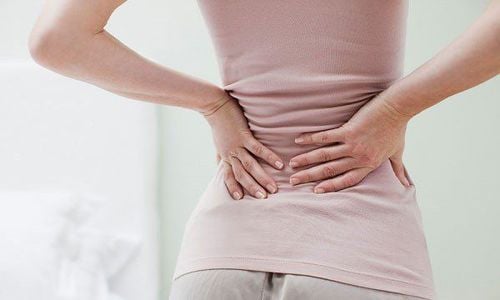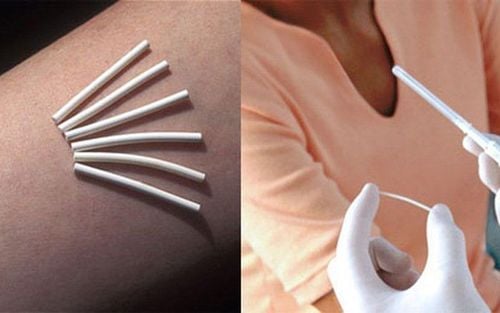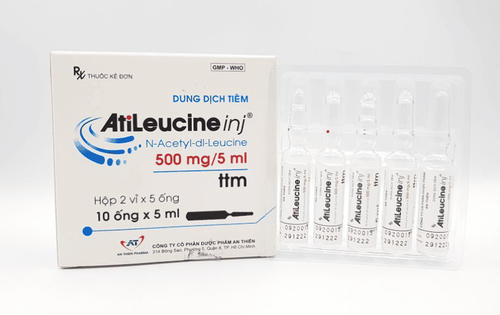This is an automatically translated article.
Menstruation is cyclical in nature, when a woman's body removes the accumulation of the lining of the uterus if no pregnancy occurs. Recognizing the early signs of menstruation will help women prepare for and cope with the unpleasant symptoms that the body experiences during this time more easily.1. 10 signs of coming period like?
Women may feel some of the following signs before menstruation:
Breast tenderness: The change in hormone levels before menstruation can cause pain, swelling and tenderness in the breasts, increased sensitivity in the breast area. flower. Headaches: When estrogen levels drop before the menstrual cycle, the sudden hormonal disturbance can cause menstrual-related headaches, including migraines and tension headaches. muscle. Abdominal cramps: This is one of the most common signs of coming period. Dysmenorrhea or dysmenorrhea is sharp, cramping pain that occurs in the lower abdomen. The mechanism of abdominal pain is due to the alternating contraction and relaxation of the uterine muscle layers, in order to create a force to shed the endometrium when neither pregnancy nor implantation occurs. vagina. Muscle pain: A woman not only feels abdominal pain, but also muscle pain, leading to pain and fatigue in the whole body. Lower back pain: This sign of coming period is usually caused by cramping pain in the lower back, causing a woman to have low back pain in the days before her period. Fatigue: Hormonal changes before menstruation can affect the secretion of brain chemicals, making a woman feel more tired than before her period. This can also cause sleep problems, contributing to extra fatigue. Edema: Changes in the body's hormone levels can cause areas of loose connective tissue to retain water before menstruation, making the body heavier. Joint pain: Estrogen is a hormone that helps control joint pain. However, just before menstruation, the amount of estrogen in the blood will drop suddenly. This can increase pain in different joints in the body. Acne: One of the early signs of menstruation is acne. Changes in hormone levels can cause the surface of the skin to produce more oil, which can clog pores. This is the favorable situation that can cause acne-prone skin before menstruation begins. Diarrhea or constipation: The neighboring digestive system may also experience changes during menstruation, notably changes in bowel habits, causing a woman to have diarrhea mixed with constipation.

Đau lưng là một trong những dấu hiệu sắp có kinh.
2. Premenstrual syndrome
Premenstrual syndrome includes a range of unusual emotional and physical symptoms that a woman may experience in the days leading up to her period. In addition to the early signs of menstruation listed above, the body may also experience mood-related symptoms, including: Irritability, difficulty accepting, anxiety, melancholy, indignation, anger, lack of interest in communicating with others or are sensitive, easy to feel sorry for, cry easily.
3. Mechanism of forming signs to recognize the coming of period
During each menstrual cycle, one of the ovaries on either side of the iliac fossa releases an egg. At the same time, the lining of the uterus will build up in preparation for pregnancy and implantation. However, if there is no meeting of the egg and sperm, meaning pregnancy does not occur, the levels of the hormones estrogen and progesterone will drop suddenly and menstrual bleeding will occur through the vagina. Endometrial sloughing, which causes bleeding, can last from 2 to 7 days.
While most of the normal menstrual cycle is about 28 days long, a small number of women have varying cycle lengths. Furthermore, the menstrual cycle can also be altered by various factors, including:
Birth control pills. Pregnancy. Breastfeeding. Digestive disorders . Weight loss. Exercising too hard. Most girls get their first period between the ages of 8 and 15 and can have menstrual cycles longer than 38 days. As you get older, your menstrual cycle will gradually complete and become more regular. However, menstrual cycles will become irregular again around the age of 40, when perimenopause and menopause begin. Once a woman has gone through menopause, a woman's menstrual cycle will officially end, closing her fertile years.
4. When to see a doctor during the menstrual cycle?
If your period lasts more than 7 days, has severe abdominal pain during your period, or has heavy bleeding and needs to change your tampon every hour, consult your doctor about the symptoms. this anomaly of his.
In addition, a woman should also call her doctor if:
Has not had a period for 90 consecutive days. Menstruation occurs more often than once every 21 days. Menstruation less than once every 35 days. In addition, a delayed or irregular menstrual cycle can be a sign of physical and emotional stress or a certain medical condition. Early gynecological examination to find the cause of irregular periods and early treatment is essential for future fertility.

Khi chưa nhận thấy dấu hiệu sắp có kinh thì nên đi thăm khám bác sĩ.
5. How to reduce the signs of coming period
Consuming a healthy diet low in caffeine, alcohol and salt will effectively manage the unpleasant symptoms of PMS.
Besides, regular exercise, enough sleep and reducing stress also help reduce these annoying signs of impending menstruation.
However, when the signs of impending menstruation are severe, difficult to tolerate and affect your life, including activities and work, your doctor may prescribe birth control pills and other similar drugs. as hormone therapy to intervene to relieve those unpleasant symptoms.
In summary, signs of impending menstruation are common in most adult women, but with different degrees, depending on how each body feels. Most of the time, these signs are annoying, affecting daily activities. However, if a woman understands the rules and mechanisms and takes proactive measures to prevent, the menstrual days will be easier to tolerate and pass more smoothly.
Please dial HOTLINE for more information or register for an appointment HERE. Download MyVinmec app to make appointments faster and to manage your bookings easily.
References: Yourperiod.ca, healthline.com, webmd.com, medicinenet.com












